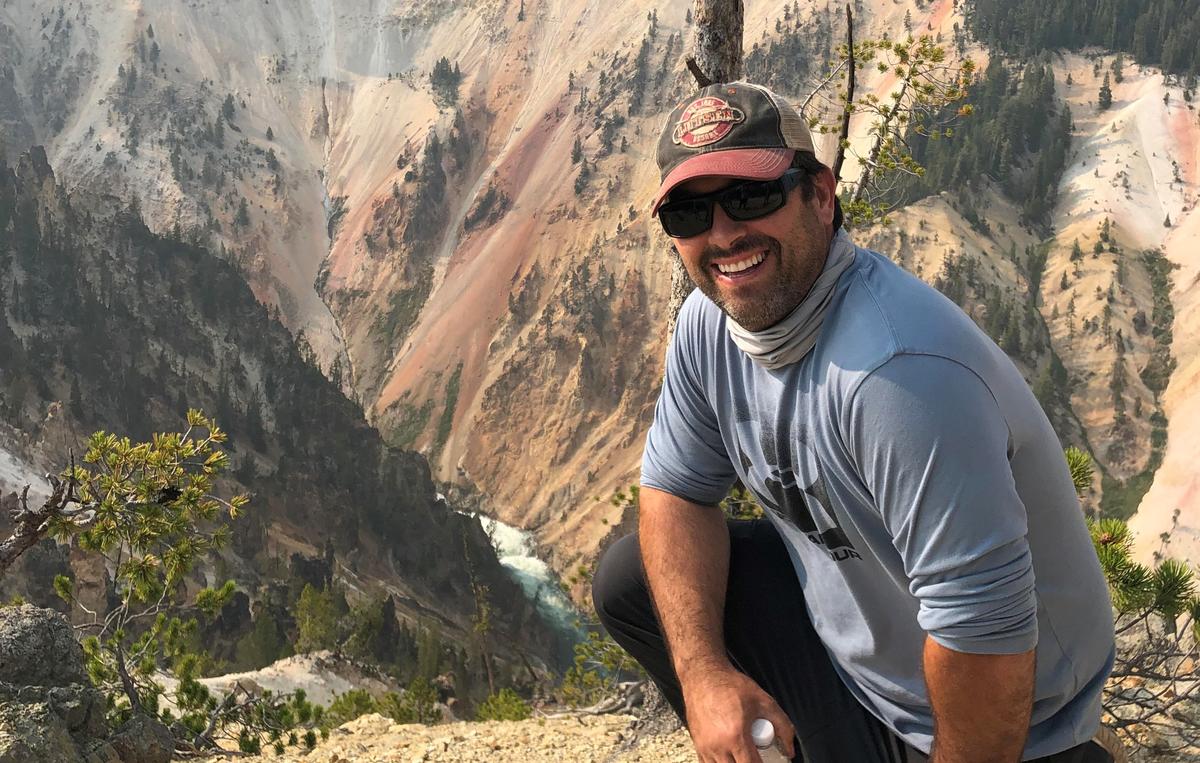No one’s more grateful for NRRI’s team approach than Engineering and Maintenance Lead Jeff Kinkel. It’s his job to manage NRRI’s ever evolving and expanding lab bench to pilot-scale research projects. That’s where things get interesting… and often very complicated.
Kinkel came to NRRI after a nine year career at Minnesota Power. He brought with him a deep process and leadership background that has really helped NRRI move forward in engaging clients and coworkers. He now finds himself playing an important role in nearly every scale-up engineering project at NRRI.
Lately, his effort is spent in scaling up kiln temperatures in NRRI’s Biomass Conversion Lab from 300oF to 1,100oF to make biochars and torrgas (torrefaction gas), a low-grade form of synthetic gas or “syngas” (a mixture of carbon monoxide and hydrogen). This torrgas is composed of the volatiles that are driven out of the biomass as it’s heated up in the large rotary kiln during the charring process. The torrgas is burned in the upstream dryer system to destroy the volatile organics and take advantage of their energy content to offset the need for natural gas.
“It’s been challenging,” said Kinkel. “The torrgas can condense from a gas into a gooey tar when the gas temperature falls below 300 degrees. The tar gums up the pipes and nozzles.”
The composition of the torrgas varies depending on the type of biomass being processed which makes the condensation temperature hard to predict.
Kinkel and the Biomass Conversion Lab team are constantly working to improve NRRI’s ability to safely process different types of biomass. Most of the process improvements deal with the line that transports the syngas from the kiln to the dryer combustion chamber and to burner nozzles and process controls. Recent changes include improvements to maintain gas temperatures above the condensation temperature and modifying burner nozzles to prevent plugging and allow for easy cleaning while operating.
NRRI has a fully automated process control system that help operators maintain process conditions at the proper setting for pressure, temperature and feed rate.
“This has definitely been a team approach to improving the system,” Kinkel said. “The Biomass Conversion Lab has three full time research technicians that operate the system. Feedback from the technicians and understanding operating challenges that they are facing has been the key to making improvements.”
NRRI Collaborations
While Kinkel enjoys working with colleague Matt Young on this project, he credits the Management of Change team with smooth transitions when equipment changes are made.
“Their process has really been important in keeping a clear line of communication for all and helping to identify any gaps,” he said.
The Management of Change team includes: Rolf Weberg (NRRI Executive Director), Kevin Kangas (NRRI Coleraine Labs Director), Jean Cranston (UMD Safety), Lisa Estepp (NRRI Quality), Steve Berger (NRRI Operations Director) and Craig Maly (NRRI-Duluth Facilities).
Pandemic Education
Kinkel joined NRRI in 2019 and he appreciates the new challenges he faces on the job. But the current pandemic has emphasized just how well suited he is to his role at NRRI and his skills in engaging clients and stakeholders.
“I'm definitely not wired to work from home,” he said. “I'm a very hands on type of person, so I’m really glad we figured out how to work in the labs safely.”
PHOTO: Jeff Kinkel enjoys a summer backpacking adventure with his family at Yellowstone Canyon.
